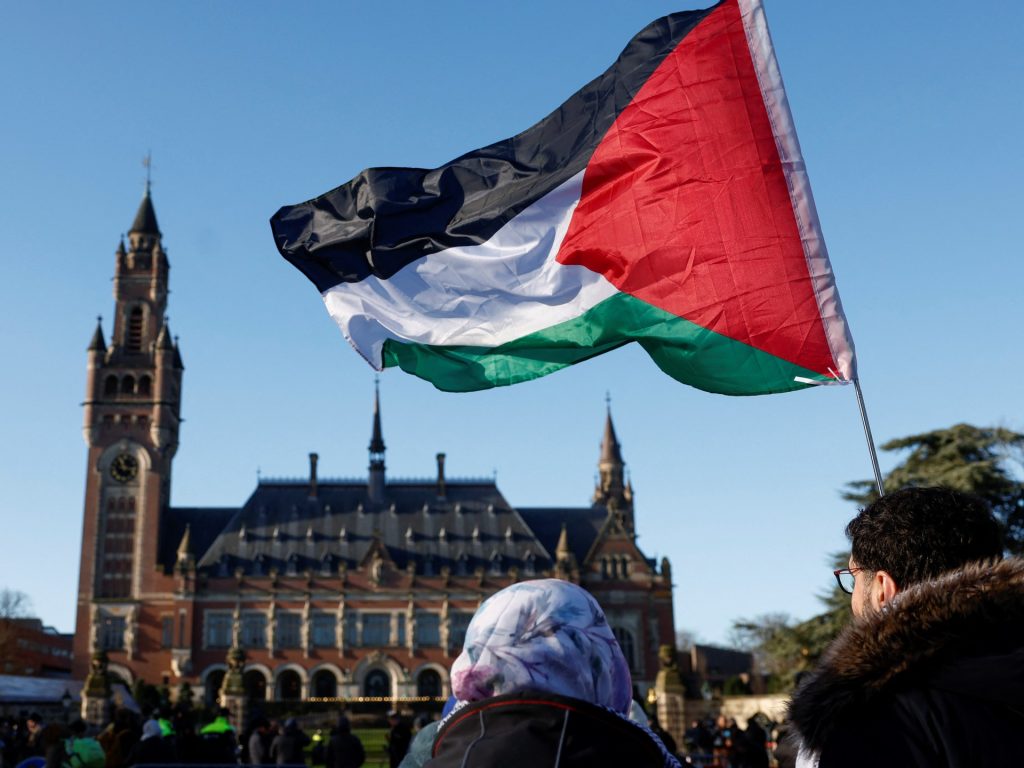The International Court of Justice is currently holding hearings to address Nicaragua’s allegations that Germany has helped facilitate what they are calling a “genocide” in Gaza by Israel. The hearings are set to take place over two days and will delve into the details of Nicaragua’s case against Germany. This accusation comes amidst ongoing conflict and tensions in the region, with Nicaragua seeking justice for what they believe to be human rights violations in Gaza. The court will carefully consider the evidence presented by both parties before making a decision on the matter.
Germany has been accused of aiding Israel in committing acts of genocide in Gaza, according to Nicaragua’s claims. This accusation has sparked outrage and controversy, as genocide is considered one of the most serious crimes under international law. The court will carefully examine the evidence presented by Nicaragua to determine the validity of these accusations. Both parties will have the opportunity to present their arguments and evidence before the court in order to seek a resolution to this complex and contentious issue.
The hearings at the International Court of Justice are expected to shed light on the alleged role of Germany in the conflict in Gaza. This case has garnered significant attention from the international community, as it raises important questions about the responsibilities of states in ensuring human rights and preventing genocide. The court will play a crucial role in determining the truth behind Nicaragua’s accusations and providing a fair and just resolution to this dispute. The outcome of these hearings could have far-reaching implications for the ongoing conflict in Gaza and the broader issue of human rights protections.
Nicaragua’s case against Germany is likely to focus on the alleged complicity of the German government in facilitating Israel’s actions in Gaza. The hearings will provide a platform for Nicaragua to present their evidence and arguments in support of their claims. Germany, on the other hand, will have the opportunity to defend themselves against these accusations and present their own evidence to refute the allegations. The court will carefully consider all the information presented by both parties before reaching a decision on the matter, highlighting the importance of a fair and thorough examination of the facts in such a serious case.
The accusations of genocide in Gaza by Nicaragua against Germany have raised important questions about the role of states in preventing human rights violations. The hearings at the International Court of Justice will provide a forum for these issues to be addressed and for justice to be sought for the alleged victims of these crimes. The court will play a critical role in determining the truth behind these accusations and providing a fair and just resolution to this contentious dispute. The outcome of these hearings will have significant implications for the ongoing conflict in Gaza and for the broader issue of international human rights protections.
As the hearings at the International Court of Justice unfold, the world will be watching closely to see how this complex and contentious case is resolved. The court will carefully examine the evidence presented by both Nicaragua and Germany in order to determine the validity of the accusations of genocide in Gaza. This case underscores the importance of holding states accountable for their actions and ensuring that justice is served for victims of human rights violations. The outcome of these hearings will have far-reaching implications for the ongoing conflict in Gaza and for the broader issue of international law and human rights protections.















